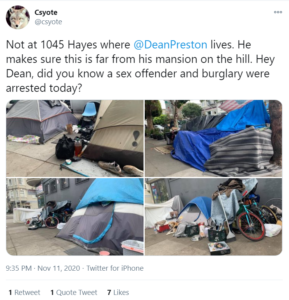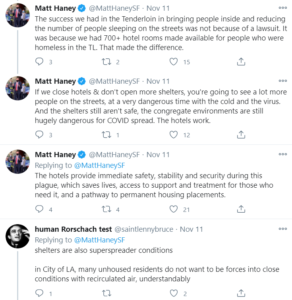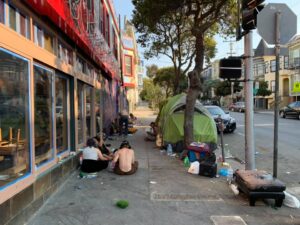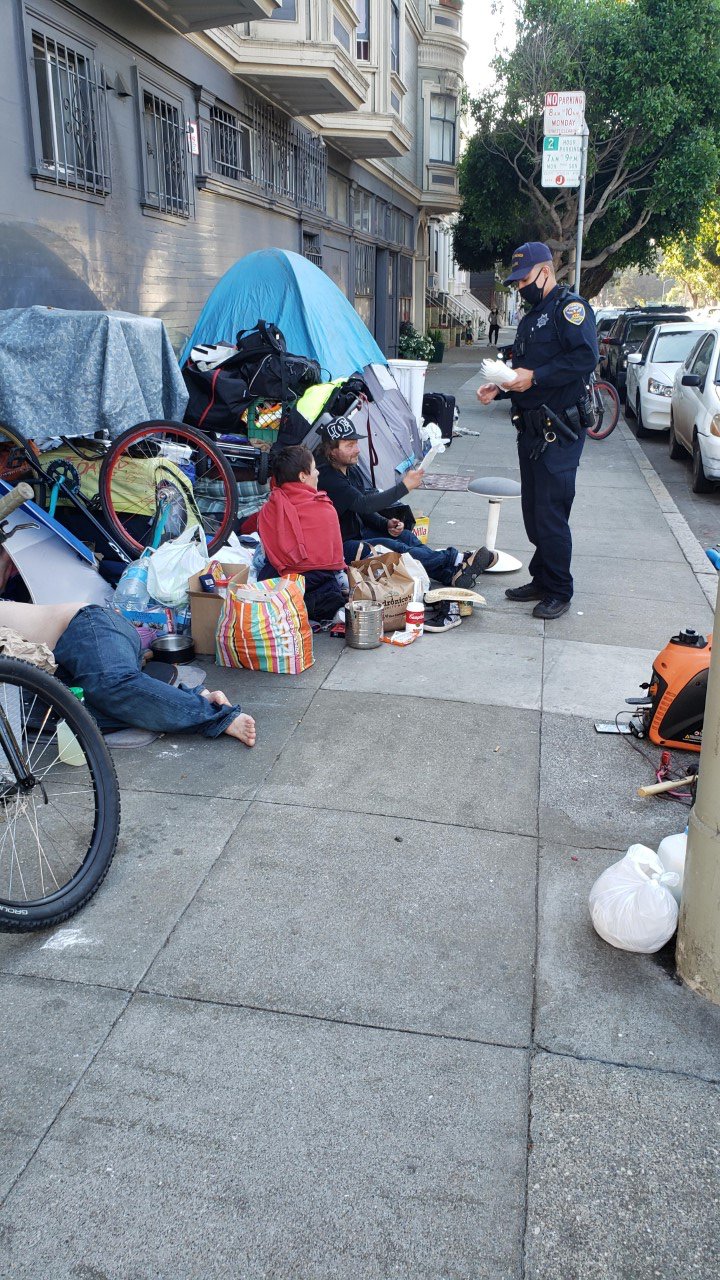SAN FRANCISCO—Mayor London Breed announced the first phase of a plan to move 2,300 homeless people staying inside hotels during the pandemic into “stable housing solutions,” a plan San Francisco Board of Supervisors Matt Haney and Dean Preston oppose.
The San Francisco Department of Homeless and Supportive Housing and non-profit partner agencies have begun identifying “stable longer-term” housing options for individuals currently staying in hotels.
The city of San Francisco activated the first Shelter-In-Place (SIP) hotel in April, providing a “safe place” for the city’s most vulnerable populations, according to press release from the Office of Mayor London Breed. Over the next six months, the SIP program for homeless people was expanded to include 29 hotel sites. An estimated 20 percent of the city’s hotel rooms have been filled.
Mayor Breed called the task of moving thousands of people into hotels a “monumental” task that took “incredible efforts,” and called for the same dedication to move homeless people into stable housing.
“Our hotel program was always temporary, but we are committed to ensuring that no one ends up on the street, she said. COVID has presented us with many challenges, but we will continue to do the work necessary to meet the needs of the impacts of this pandemic on our City and our residents,” stated the mayor.
In Phase One of the plan, which is in the development process, the City and Department of Homelessness and Supportive Housing will focus on rehousing 500 guests at 7 SIP hotels in the coming weeks. Homeless individuals will be gradually moved out in phases as the hotel housing program winds down.
San Francisco District 5 Supervisor Dean Preston, a resident of Alamo Square, tenant attorney, and founder of Tenants Together, opposed the closure of the SIP hotel program, after being actively involved in the process. On Preston’s website, he named the fact that he “pushed the city to house homeless people in hotels” as one of his accomplishments.

On Twitter, Preston gave a breakdown of the SIP hotel program’s costs, saying that out of the $178 million spent, $3 million came from the city of San Francisco, with the rest of the rest of the costs coming from federal and state sources.

San Francisco District 6 Supervisor Matt Haney, former Board of Education President and tenant attorney, opposed the effort to move homeless people out of Shelter-In-Place hotels. On Twitter, he called the SIP hotel program “successful,” and voiced opposition to its closure:
“The Shelter in Place program has brought over 2,400 people off the streets during COVID. It’s been hugely successful. The entire cost of the program to [the] SF General Fund is $3 million a year. It makes no sense at all to “demobilize” hotels when both COVID and homelessness are spiking.”
Community members criticized the Board of Supervisors’ homeless policy in the comments section of his tweet. People argued that shelters are “super spreaders of the virus” and that the policies are “burning tax dollars.”

Steve Adams wrote: “You talk as if burning tax dollars, as long as they aren’t local, impose no cost on society. And you might want to ask how those 2,400 homeless, mostly-addicted drifters wound up in SF in the first place.”
Haney defended his policies, and said that the city needed more homeless shelters, not less:
“If we close hotels & don’t open more shelters, you’re going to see a lot more people on the streets, at a very dangerous time with the cold and the virus. And the shelters still aren’t safe, the congregate environments are still hugely dangerous for COVID spread. The hotels work.”
Haney asked community members to contact him via email for questions. Mike Carlyle complained that he had not received a single response despite attempts to contact him: “Stop using Covid as an excuse to not do your job. You haven’t been to the office in 7 months. You don’t answer your phone. You don’t answer emails and you ignore your constituents. Move on Matt.”
CBS San Francisco Bay Area reported that some neighbors of SIP hotels have complained of rising crime, from home invasions, car break-ins, shootings, “open air drug abuse,” and sexual acts being performed during the day.

The Department Homeless and Supportive Housing launched on July 1, 2016 in collaboration with the Department of Public Health, the Human Services Agency, and the Mayor’s Office of Housing and Community Development. The mission description reads: “HSH strives to make homelessness in San Francisco rare, brief, and one time through the provision of coordinated, compassionate and high-quality services.”
HSH Interim Director Abigail Stewart-Khan said the process of moving homeless people into permanent housing takes time and will be challenging due to the unique impacts of the continued evolution of COVID. “Under Mayor London Breed’s leadership, the City has never been more committed to ending homelessness,” Stewart Khan said.






